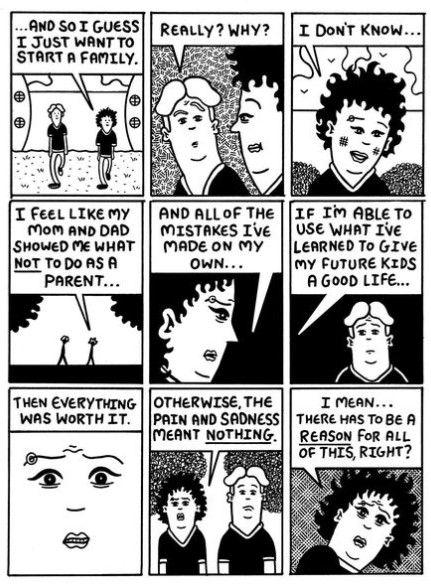
I often write about the concept of identity. I am fascinated by its fragility and malleability juxtaposed against the idea of there being an inherently unchangeable core.
Identity can change as we inhabit different roles, different places, and different phases of life. Who we are in the workplace seems to be slightly different than who we are in a bar. Who we are when we are 19 is different than who we are when we are 55. When I’ve had a few cocktails with my old Texas buddies, I seem to be a slightly different person than when I’ve had a few cocktails with my new California friends.
I wonder: Where am I in all this? What’s my part in shaping my identity? What’s been my role in making the “me” in me?
Can we “Gatsby” ourselves into existence and make it stick? Can we paint ourselves like Ziggy and be the rock and roll star? Or are we, in the end, the result of what has happened to us, the sum total of all the turns at bat, having little to no agency in the byproduct?
I’m not here for answers, to be honest. I’m here to write a review of the 2022 MICE mini-grant awardee comic Memories by Desmond Reed, a brilliant, emotionally ham-fisted, totally unexpected work of art that sticks with me weeks after reading it.

In nine panel page after page of black and white “noodly cartooning”, Reed lays out the history of Wallace T.J., the “pure dumb fun” alcoholic drummer in a band called The Cola Pop Creemees. In Memories, Reed does his best to explain, perhaps, why Wallace T.J. is the way that he is. He is a product of tragedy, of his family’s inability to grieve together in a healthy way, of a lack of the love and support he needed, and of the selfishness and greed of the world.
As he grows and tries and suffers to be the person he is to be, he never truly finds a way to heal and build a healthy life for himself. He is a lost person drawn into a relationship with a broken person whose inability to heal from trauma and addiction pulls the fragile foundation he’s tried to build for himself out from beneath him. Wallace T.J. is the man that his bandmates think him to be because of this arc of development, not because that is who Wallace T.J. “is”.

Reed has cleverly crafted this narrative in the form of interwoven flashbacks that peel back the character’s past. The pages become an interconnecting series of vignettes that illustrate events that he has no capacity to deal with. He descends into the darkness of disappointment, grief, fear, disconnection, and addiction. He becomes barely functional. By the time he says to his bandmate, “You know me too well,” Wallace T.J. has almost completely abandoned himself.
When the person with whom you are interacting is presenting their front, do you spend the time to understand the “why” of what has gathered there in the back? Or is the person they show up as themselves all we get? Are they powerless to be anything other than the person they have become? Does our obsession with “being better” tomorrow indicate that we’re not addressing the past – even running from it?
Desmond Reed is not here for answers, either. In Memories, the life of Wallace T.J. is the life of Wallace T.J. – it would take a host of other factors for him not to be who he is. But Reed couches it all without moralizing or explaining. And as we, as readers, sit back and absorb the “why” of the “who” that is Wallace T.J. – perhaps, just perhaps, we might have the opportunity to begin to understand ourselves, or the selves as others see us, as well.
SOLRAD is made possible by the generous donations of readers like you. Support our Patreon campaign, or make a tax-deductible donation to our publisher, Fieldmouse Press, today.

Leave a Reply